
Part 2 of the career of the fast MZ driver in the early years
After his victory in the Sachsenring in 1953, Horst Fügner suddenly gained fame. It was the first post-war year in which drivers from abroad had won on the Hohenstein-Ernstthal track. With Frantisek Bartos (250cc) and Gustav Havel (500cc) both came from the neighboring CSSR (Czechoslovakia). This success was just as important for the IFA team. IFA chief engineer Walter Kaaden and his people had finally proven that their new in-house development was victorious even in international competition. However, international successes were a long way off this year. In West Germany, two works teams, NSU and DKW, have successfully competed in the world championship since this year. The company from Neckarsulm won both world titles in the smaller classes (125cc and 250cc) with Werner Haas in 1953.
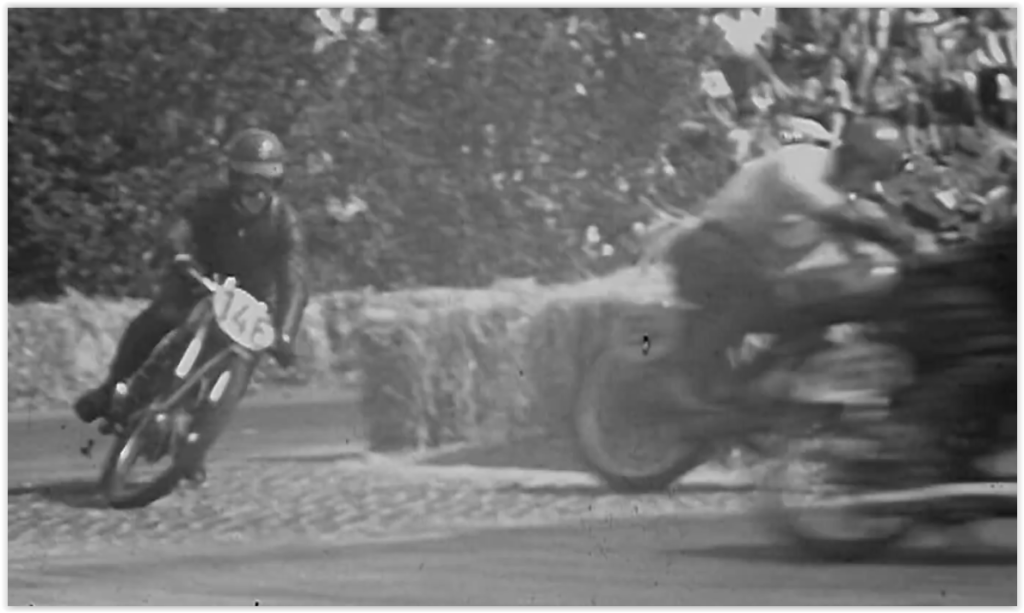
The GDR championship in 1953
Due to the inadequate reliability of the new IFA 125cc machine in the first year, Horst Fügner did not finish too often. The first bikes that were finished always suffered from teething problems. Bernhard Petruschke was allowed to use his still competitive ZPH because too few IFA racers had finished. The thoroughbred racing driver from Kleinmachnow in Silesia was even able to access the infrastructure from Zschopau. An advantage that should not be underestimated for the preparation of its rotary valve ZPH.
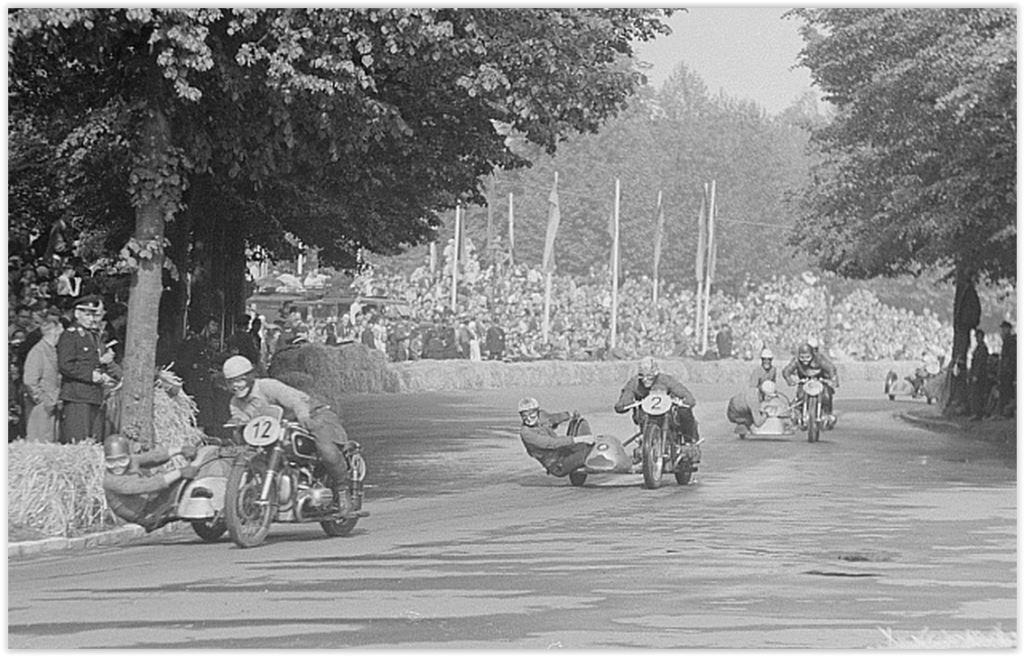
The national title went to the old master
In the end, the 125cc GDR championship clearly went to Petruschke, while last year’s champion Erhard Krumpholz only finished third at IFA. The ZPH had no more teething problems and was therefore significantly more reliable than the IFA. As runner-up, Horst Fügner was the best driver on the new design from Zschopau. In the course of the 1953 season, the IFA had become stronger and stronger in terms of engine power. Not much was missing from the MV Agusta Production Racer available at that time. Of course, the competition’s factory machines, especially those from NSU, were a good deal more powerful.

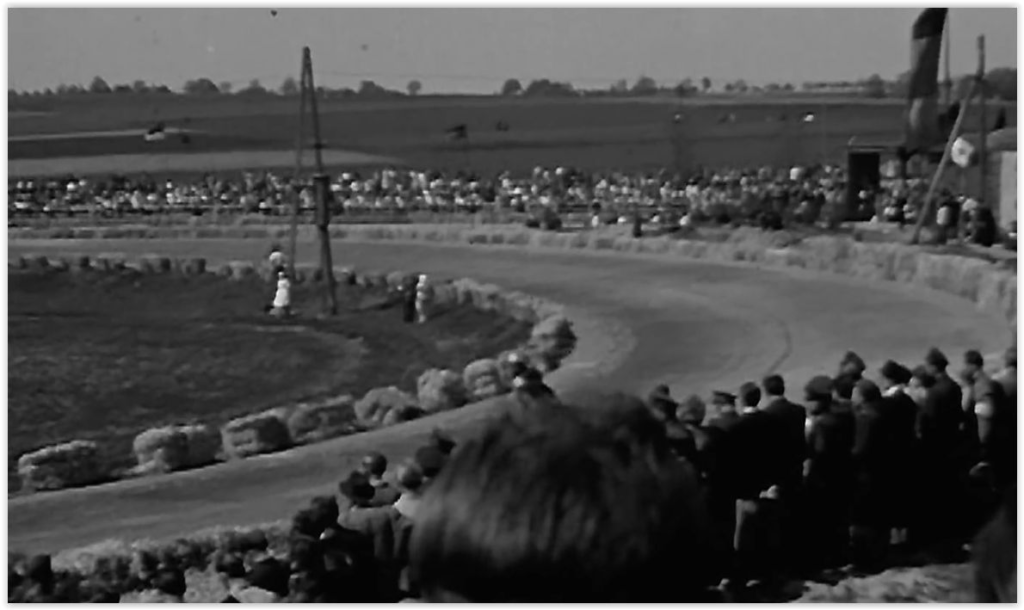
The 1954 Season of Horst Fügner


The first international missions
After his victory at the Sachsenring in 1953, in addition to racing in the GDR, the young Horst Fügner was also used on foreign tracks for IFA the following year. At the side of the experienced teammates like Bernd “Petrus” Petruschke and Erhart Krumpholz, he had already proven his driving class. His team mates Siegfried “Siggi” Haase and Horst, who were also very young, began to put the “old hands” in the IFA team under a lot of pressure. The first participation abroad was in the Eilenriederennen in the city park of Hanover.
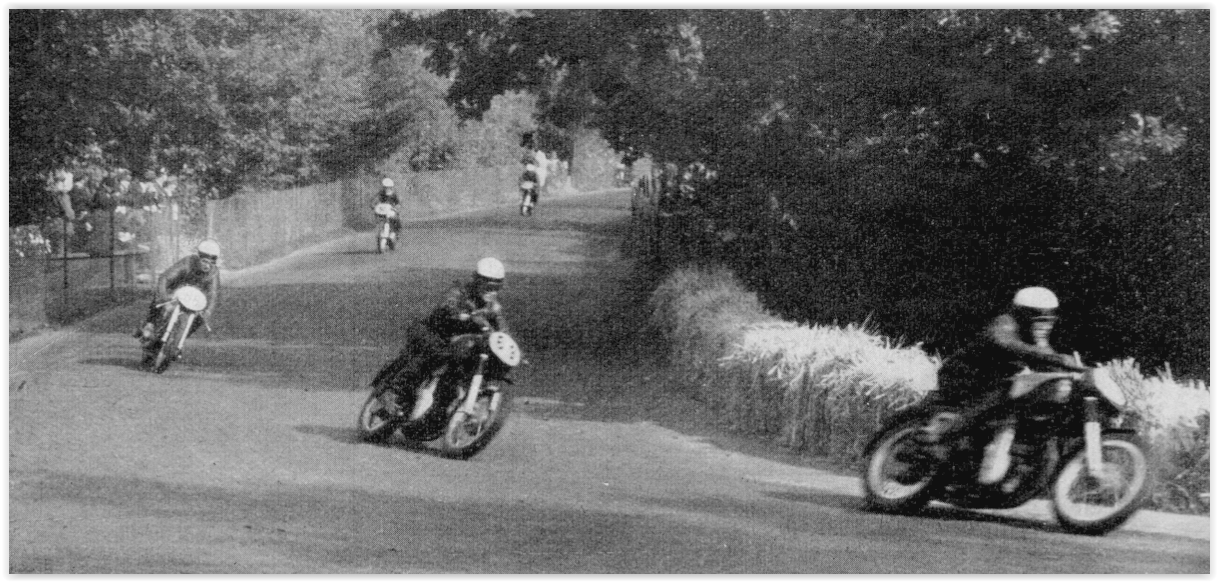

Eifel race on the Nürburgring
In May it was so far that Horst and Bernhard “Petrus” Petruschke were allowed to take part in the well-known Eifel race on the Nürburgring for IFA. With his 5th place, Fügner had become the best in the private driver classification at the Nürburgring in 1954. In the absence of a FRG driver’s license, this was technically correct and he had earned the wreath even though he was basically a works driver. But the NSU bikes were on a completely different level in terms of their performance.


The triumph in the Taunus Mountains for the man from East Germany
In July it was time again that Horst was allowed to travel to neighboring West Germany with the IFA team. At the Feldberg race in the Taunus, known for its international races in the 1950s, Fügner was to write racing history this time. occurs. And the man from the GDR won the 125cc class ahead of Karl Lottes on MV Agusta. 3rd place went to IFA team-mate Erhard Krumpholz. Bernhard Petruschke was also there, but didn’t get past 12th place. The following year the West German Lottes became German champion in the 125s with his MV and won the Solitude race in 1955.
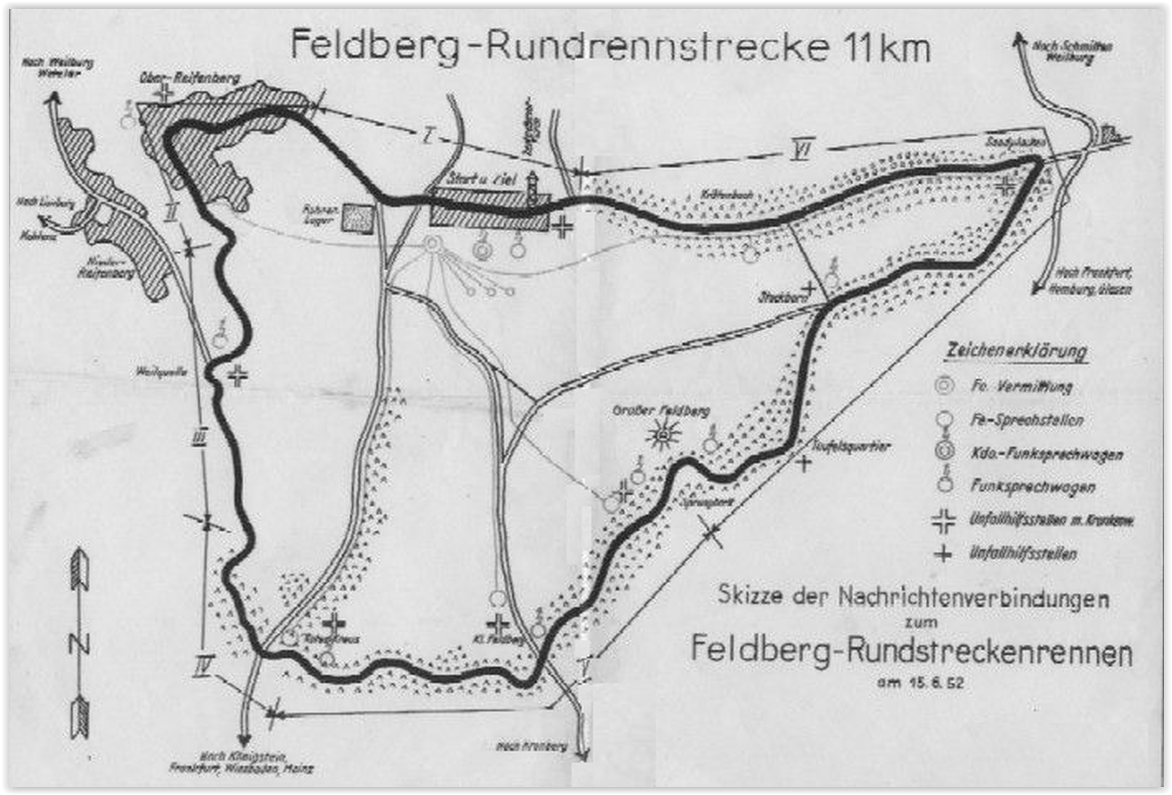
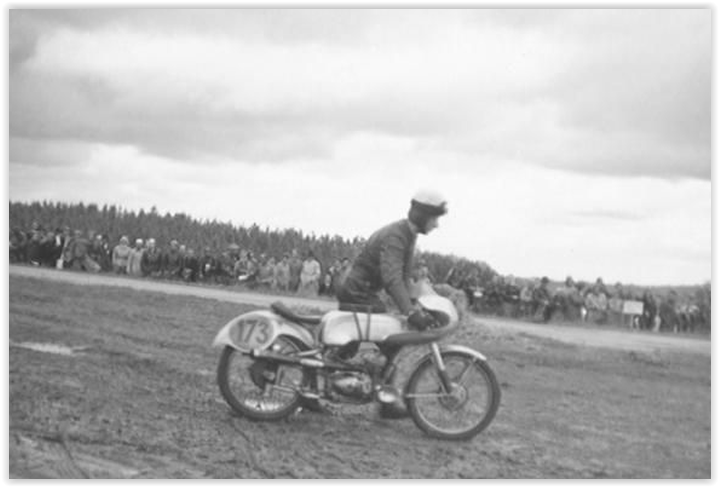
Further strong performances in West Germany
The Norisring race took place in Nuremberg on August 1st with an extremely strong line-up. In the 125cc class, Rupert Hollaus, the world champion of the same year, took victory. Austria, who died far too early, had no opponents to fear with his works NSU. In the same year Hollaus was to lose his life in training for the Nations GP in Monza. Then he was posthumously declared the first world champion of the Alpine republic. Horst Fügner also showed what he could do in this race and took an excellent 4th place behind H. P. Müller on the second NSU factory machine and Karl Lottes on MV.
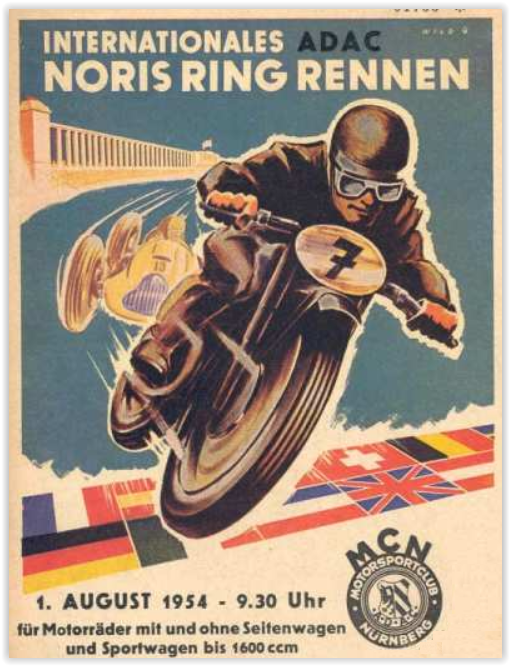

Top ten result at the World Championship run on the Solitude
Fügner was also at the start of the 125cc series at the Solitude. However, the entire world elite was represented on the track near Stuttgart. Here the performance inferiority of the still young 125cc IFA against the factory machines from MV Agusta, NSU, as well as the strong FB-Mondial had a particularly striking effect. Under these circumstances, rank 8 was a very good result for Horst. At that time, however, there were only six championship points for the first 6 drivers. From 1969 onwards, Fügner would have already scored world championship points for IFA. The victory on the Solitude went to NSU works driver Hollaus, ahead of his teammate Werner Haas (about both of which you can find articles in our history). Third was the Italian Carlo Ubbiali (MV) ahead of German veteran H. P. Müller (NSU) and the Englishman Cecil Sandford (MV).
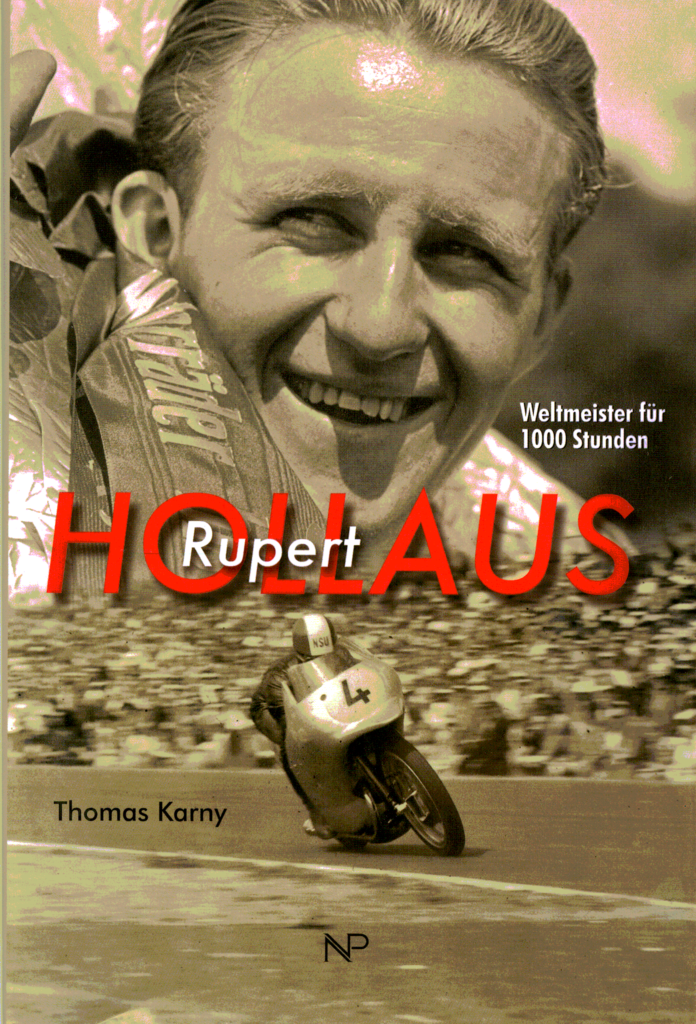
GDR and FRG championship 1954
Only 3 weeks after the victory on Feldberg in the Taunus Mountains and one week after Nuremberg, the race of the Halle-Saale loop took place. It was one of the most important events in the GDR and counted for the evaluation of the East German motorcycle championship. This 5.256 km (3.26 miles) long route was used from 1950 to 1968 for hosting racing events. For a while, grass track races were also held here.

Fügner won the 125cc class in Halle and with that confirmed his success from the previous year at the Sachsenring. His IFA comrades “Petrus” Petruschke as GDR champion and Erhart Krumpholz as second made the national title among themselves and ended up in the final account before Horst and their other teammate Siggi Haase. But the successes abroad against much stronger competition were considerably more valuable, also for the Zschopau plant. Behind Haas, Müller (both NSU) and Lottes (MV), Fügner took an excellent 4th place in the West German 125cc championship with a total of 11 points.
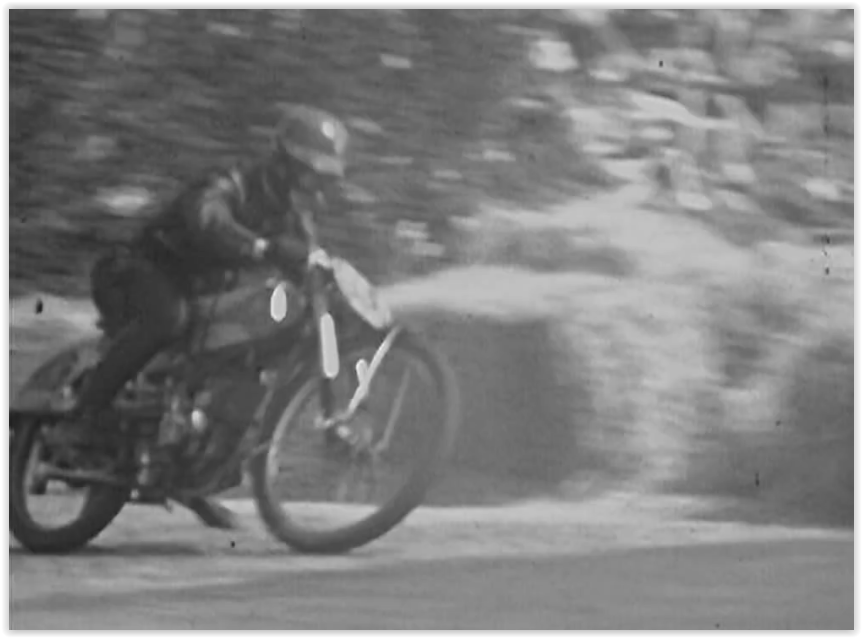
Part 3 of the Horst Fügner story coming soon..
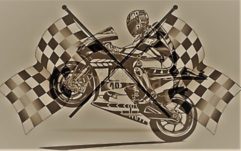
No Comments Yet